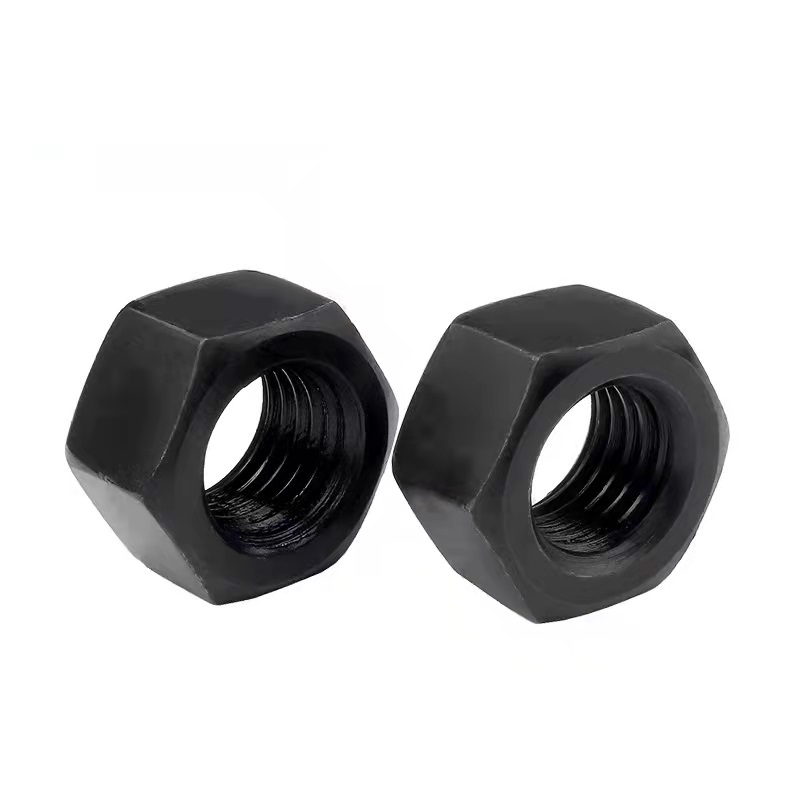Top Exporters of ASTM Hex Bolts for Global Suppliers
Nov . 10, 2024 07:53 Back to list
Top Exporters of ASTM Hex Bolts for Global Suppliers
The Global Market for ASTM Hex Bolts A Look at Exporters
Hex bolts, specifically those adhering to ASTM (American Society for Testing and Materials) standards, are essential components in a wide array of industries, from construction to manufacturing to automotive applications. The demand for high-quality fasteners, including ASTM hex bolts, has been growing globally. This article explores the market dynamics, the role of exporters, and the implications for businesses reliant on such supplies.
Understanding ASTM Hex Bolts
ASTM hex bolts are distinguished by their hexagonal heads and are designed to securely fasten two or more objects. The ASTM standards ensure that these bolts meet stringent criteria regarding material properties, dimensions, and performance under various conditions. These specifications are crucial for maintaining safety and structural integrity in applications where such fasteners are used.
The market for ASTM hex bolts is influenced by several factors, including construction activity, industrial growth, and technological advancements. With the rapid advancement of construction techniques and the rising complexity of design requirements, the need for reliable fasteners is more critical than ever.
The Role of Exporters in the Hex Bolt Market
Exporters play a pivotal role in the ASTM hex bolt market. They bridge the gap between manufacturers and end-users, facilitating the distribution of these essential components across borders. Many countries have established themselves as hubs for the production and export of high-quality fasteners, owing to their advanced manufacturing capabilities and expertise in metallurgy.
Countries like China, Germany, and the United States are prominent exporters of ASTM hex bolts. They leverage technological advancements and economies of scale to provide competitive pricing and quality assurance. Additionally, these exporters often have robust supply chains in place, ensuring timely deliveries and an extensive range of products to meet diverse customer needs.
Quality Assurance and Compliance
astm hex bolt exporters

For exporters of ASTM hex bolts, adhering to international quality standards is paramount. Compliance with ASTM specifications not only enhances product credibility but also fosters trust among buyers. Exporters often invest in quality control systems, certifications, and testing to ensure their products meet the required standards. This commitment to quality is essential, especially considering the potential consequences of using inadequate fasteners in critical applications.
In recent years, there has been a growing emphasis on sustainability and environmentally friendly practices in the manufacturing of hex bolts. Exporters are increasingly seeking to comply with environmental regulations and leverage green manufacturing processes. This trend aligns with global goals for sustainability and offers a competitive edge in the market.
Challenges Faced by Exporters
Despite the opportunities in the ASTM hex bolt market, exporters face several challenges. One significant issue is fluctuating raw material prices. Bolts are commonly made from steel, and the prices of steel can vary due to market conditions or geopolitical factors. Exporters must navigate these fluctuations carefully to maintain profitability while offering competitive pricing.
Moreover, trade regulations and tariffs can impact the ease of exporting hex bolts. Compliance with various international trade agreements and customs regulations is critical. Exporters must stay informed about changes in policies that could affect their operations, such as tariffs introduced by importing countries.
Future Prospects
Looking ahead, the global market for ASTM hex bolts is expected to expand. The ongoing recovery of the construction industry post-pandemic, along with advances in technology and manufacturing processes, will likely drive demand. Exporters are well-positioned to capitalize on this growth by leveraging innovative techniques, enhancing supply chain efficiencies, and maintaining rigorous quality standards.
In conclusion, ASTM hex bolt exporters are integral to the international supply chain of fasteners, ensuring that industries have access to high-quality components necessary for safety and functionality. As the market evolves, these exporters must adapt to challenges while seizing new opportunities, ultimately contributing to the ongoing development of various sectors around the world.
Latest news
-
High-Quality Panel Stud Bolt Reliable Panel Stud Bolt Factory & Suppliers
NewsJul.08,2025
-
High-Precision Fine Thread Locknuts Manufacturer & Supplier Custom Solutions
NewsJul.08,2025
-
PH Imperial Stud Bolt – High Strength Fasteners from Leading Supplier & Factory
NewsJul.07,2025
-
High-Quality Allen Wrench Bolts Leading Factory, Company & Suppliers
NewsJul.07,2025
-
Wholesale Ball Stud Bolt - High Quality Supplier & Factory Price Reliable Wholesale Ball Stud Bolt Company
NewsJul.06,2025
-
High-Strength Alloy Bolts Manufacturer & Supplier Quality Alloy Fasteners Factory
NewsJul.06,2025
